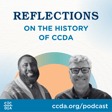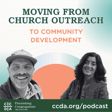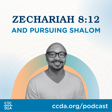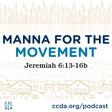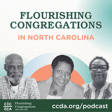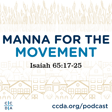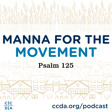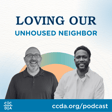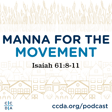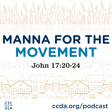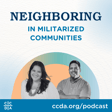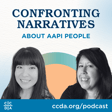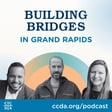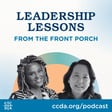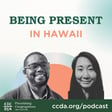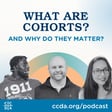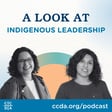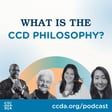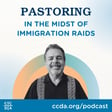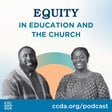
From 'In the Community' to 'With the Community'
Lynette McIntosh-Madrigal is joined by Pamela Evans and Pastor Jermaine B. Armour of Saint Luke AME Zion Church in Wilmington, North Carolina. They share stories of hope, discuss how they are partnering with God and their neighbors to see their community flourish, and reflect on their journey from being in the community to being with the community.
Saint Luke is part of CCDA’s Flourishing Congregations Initiative, a four-year program that empowers church leaders to deepen their congregations’ community engagement, enhance their ministries, and contribute to the flourishing of their neighborhoods.
Learn more about CCDA’s Flourishing Congregations Initiative at ccda.org/fci.
Pamela Evans currently serves as the Director of Ministries & Outreach and Administration at Saint Luke AME Zion Church in Wilmington, NC. I have been a member of the church for over 27 years. I have participated in activities at both local and conference levels within the church. I also serve in the community on various boards, such as the local chapter of the Red Cross, advisory board for the Food Bank of NC, health promoter in the Faith Health Network with Novant, and Community Mediator with the Wilmington Cape Fear Museum. I enjoy cultivating partnerships and relationships through community outreach initiatives.
Pastor Armour and his wife, Tanya, moved to Wilmington in January 2014. He is a native of Buffalo, NY, and holds a Master of Arts Degree in Christian Education from the Interdenominational Theological Center and an Honorary Doctorate Degree in Ministry from Livingstone College. He serves on several community boards, including One Christian Network, Wilmington Area Rebuilding Ministry (WARM), Kids Making It, and the Diversity and Inclusion Committee of the Red Cross. Pastor Armour and his wife have two children, Jadah Alana and Jermaine Elijah.
Learn more about Saint Luke AME Zion Church and what they’re doing in their community at newsaintluke.com.
Connect with CCDA on Instagram, Twitter, Facebook, and LinkedIn. Follow CCDA on YouTube.
